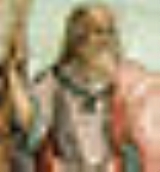
Rhetoric
Overview
Rhetoric is the art of discourse, an art that aims to improve the facility of speakers or writers who attempt to inform, persuade, or motivate particular audiences in specific situations. As a subject of formal study and a productive civic practice, rhetoric has played a central role in the Western tradition. Its best known definition comes from Aristotle, who considers it a counterpart of both logic and politics, and calls it "the faculty of observing in any given case the available means of persuasion." Rhetorics typically provide heuristics for understanding, discovering, and developing arguments for particular situations, such as Aristotle's three persuasive audience appeals, logos
, pathos
, and ethos
.
Logos
' is an important term in philosophy, psychology, rhetoric and religion. Originally a word meaning "a ground", "a plea", "an opinion", "an expectation", "word," "speech," "account," "reason," it became a technical term in philosophy, beginning with Heraclitus ' is an important term in...
, pathos
Pathos
Pathos represents an appeal to the audience's emotions. Pathos is a communication technique used most often in rhetoric , and in literature, film and other narrative art....
, and ethos
Ethos
Ethos is a Greek word meaning "character" that is used to describe the guiding beliefs or ideals that characterize a community, nation, or ideology. The Greeks also used this word to refer to the power of music to influence its hearer's emotions, behaviors, and even morals. Early Greek stories of...
.
Unanswered Questions
Quotations
I consider theology to be the rhetoric of morals. ![]()
Ralph Waldo Emerson
Category:Discourse

